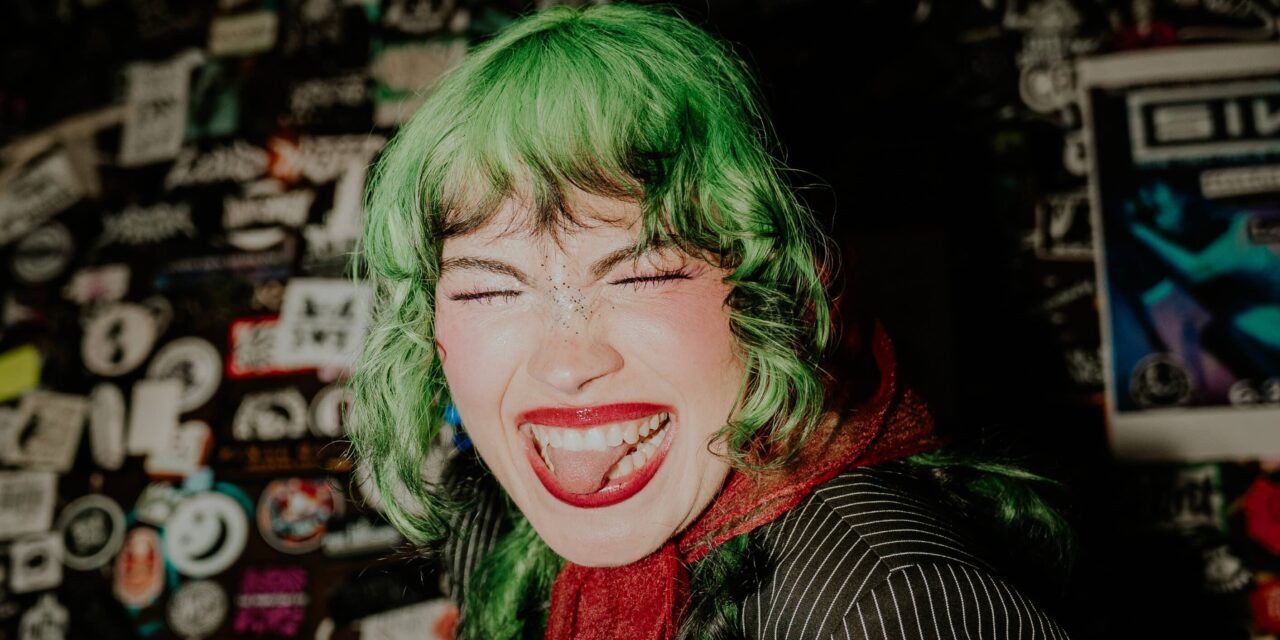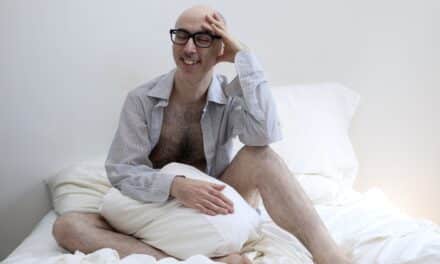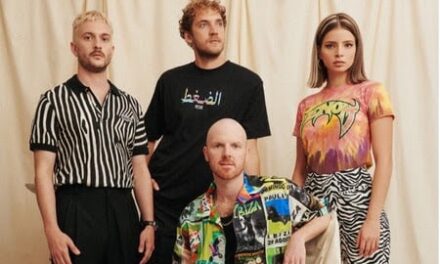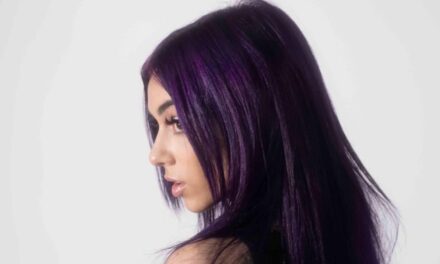Photo Credit Susie Mckeon @susiemckeon
As a band, Scowl play host to echoes of something long-since past. Jars of neon hair dye and leather boots on the floors of all-ages venues, the old-school Californian hardcore rallying cry of “go fast, no, faster!” Maintaining the ethos of their predecessors without being held hostage by it. Ushering in a new age of DIY as an act that is more confrontational, refreshing, and invigorated for a new audience, ever since the release of their inaugural 2021 record How Flowers Grow.
Since their debut, Scowl have maintained their momentum. 2023 brought on their latest EP Psychic Dance Routine. A release that bounces between the L7-esque pop-rock sensibilities of Opening Night and Shot Down to vocalist Kat Moss’ punchy screaming on songs like Sold Out and Wired. All of this while touring extensively and within their first few years as a group going from playing DIY venues in Santa Cruz to an opening slot at Madison Square Garden.
They are part of the modernized take on hardcore subculture. Reinventing itself from within. Kat Moss, in her unflinching earnesty, is unafraid of the conversation. Evolving her own identity as a performer and as her own person alongside her audience, creating an open, inclusive space where everything can exist at once, throwing out the guidebook of how things have been done before in the scene.
Mundane: You’ve said in interviews that you’ve wanted to be involved in music your whole life, but Scowl is your first band. Have there been surprises about the industry side or about touring that you hadn’t expected?
Moss: Absolutely. I feel like around every corner has been a surprise. I think the biggest one was just that the music world, whether you’re speaking from a DIY perspective or I guess from an industry perspective, is a lot smaller than I thought or had originally anticipated.
Mundane: Do you mean the people working in the industry? That it’s more tight-knit?
Moss: Yeah, it’s a small world, music is a small world, and I think I expected it to be a really big, deep hole or ocean.
Mundane: Scowl started when you were pretty young. What’s something you’ve discovered about yourself in the process of being in the band? Or how have you changed?
Moss: I’ve tapped into a lot of self-confidence that I didn’t really think that I had for a long time growing up. I feel like Scowl helped me tap into not only that level of self-confidence, but also, and maybe this sounds silly or basic, but in a way, I had never really performed before at this level, and I feel like Scowl has helped me tap into being a performer in a sense. That’s something that I’m still learning how to personalize with. When I go on stage or start playing a show, it feels like I’m able to flip a switch now and there’s this energy, and this kind of emotion that comes out of me really naturally now, whereas in the past I never tapped into that. It feels cool, it feels serious.
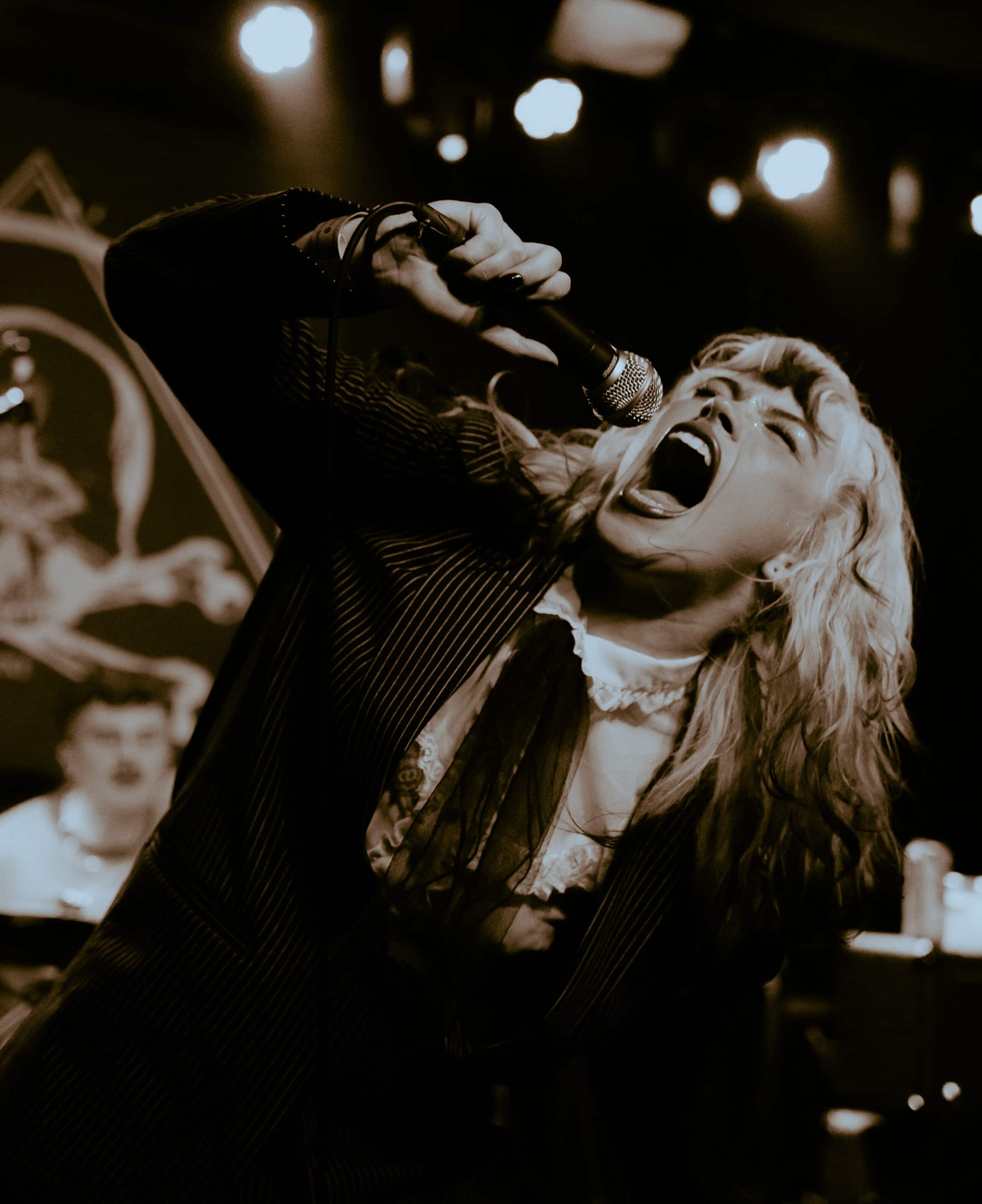
Mundane: Especially when you’re seeing people respond to the performance, that’ll change your relationship with the act.
Moss: Yeah, when it becomes more evocative I guess. I’m seeing that happen in front of me in real time, and that’s shocking, but in a good way. It’s really exciting and really cool to me, and then I remember that I’m the one doing that, and then that’s even crazier. It’s been a slow process for me on my end, psychologically reconciling that idea. Like when I come down from a show and am realizing what just happened, what I just did.
Mundane: Is there some kind of dissonance between your regular self and who you’ve become on stage? Is it better to have a separation?
Moss: I think it’s better to have a separation because you can’t always be that person. I would be exhausted if I was, personally. I’m fairly introverted, I like to be social and I like to be high energy, but at the end of the day, I still have to recharge. Being able to separate the two is really necessary in my opinion.
Mundane: How are you taking care of yourself while keeping up with the momentum of the band? You’ve talked about your mental health in the past. I’m always curious about how people maintain a good headspace when they’re on the road.
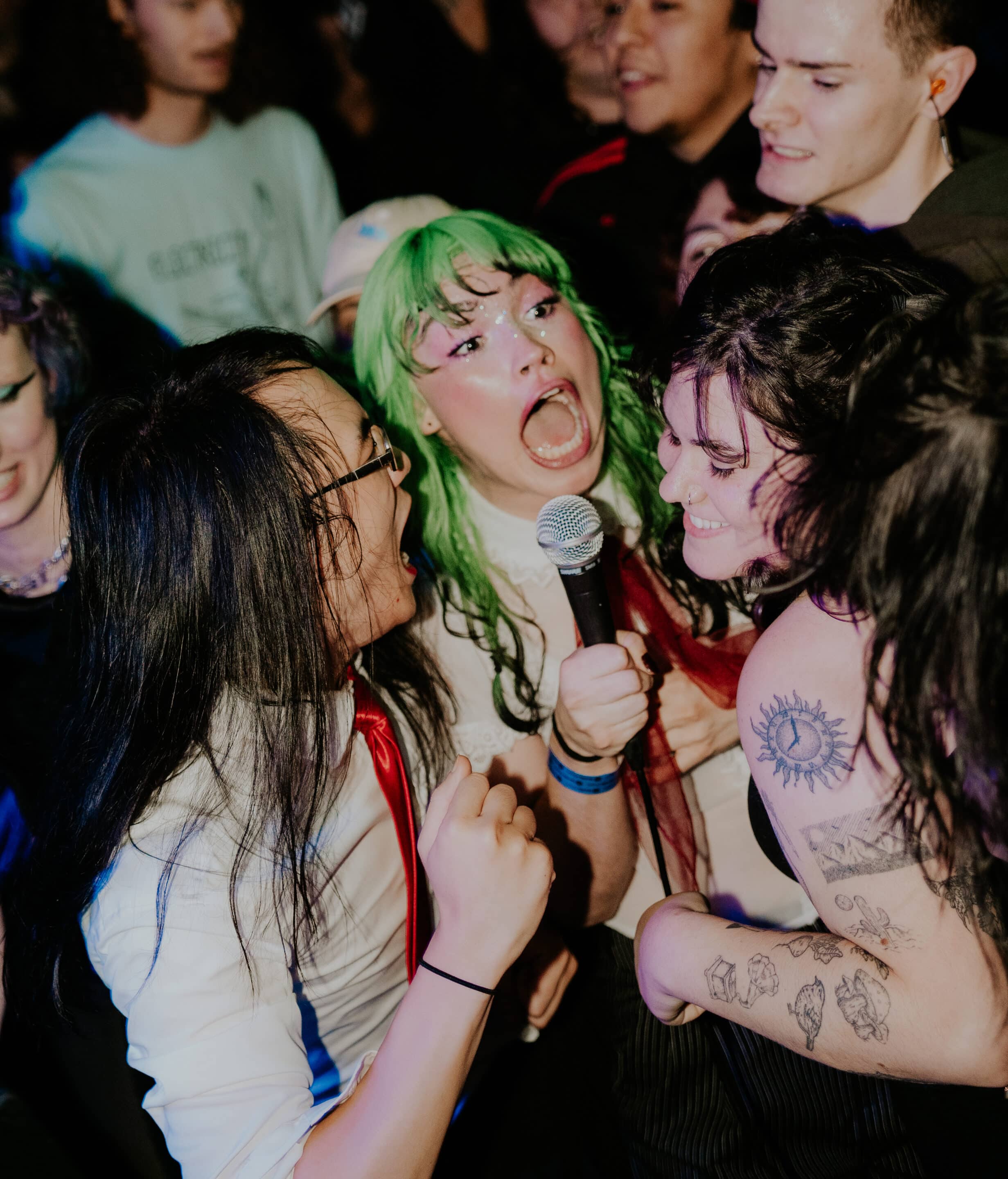
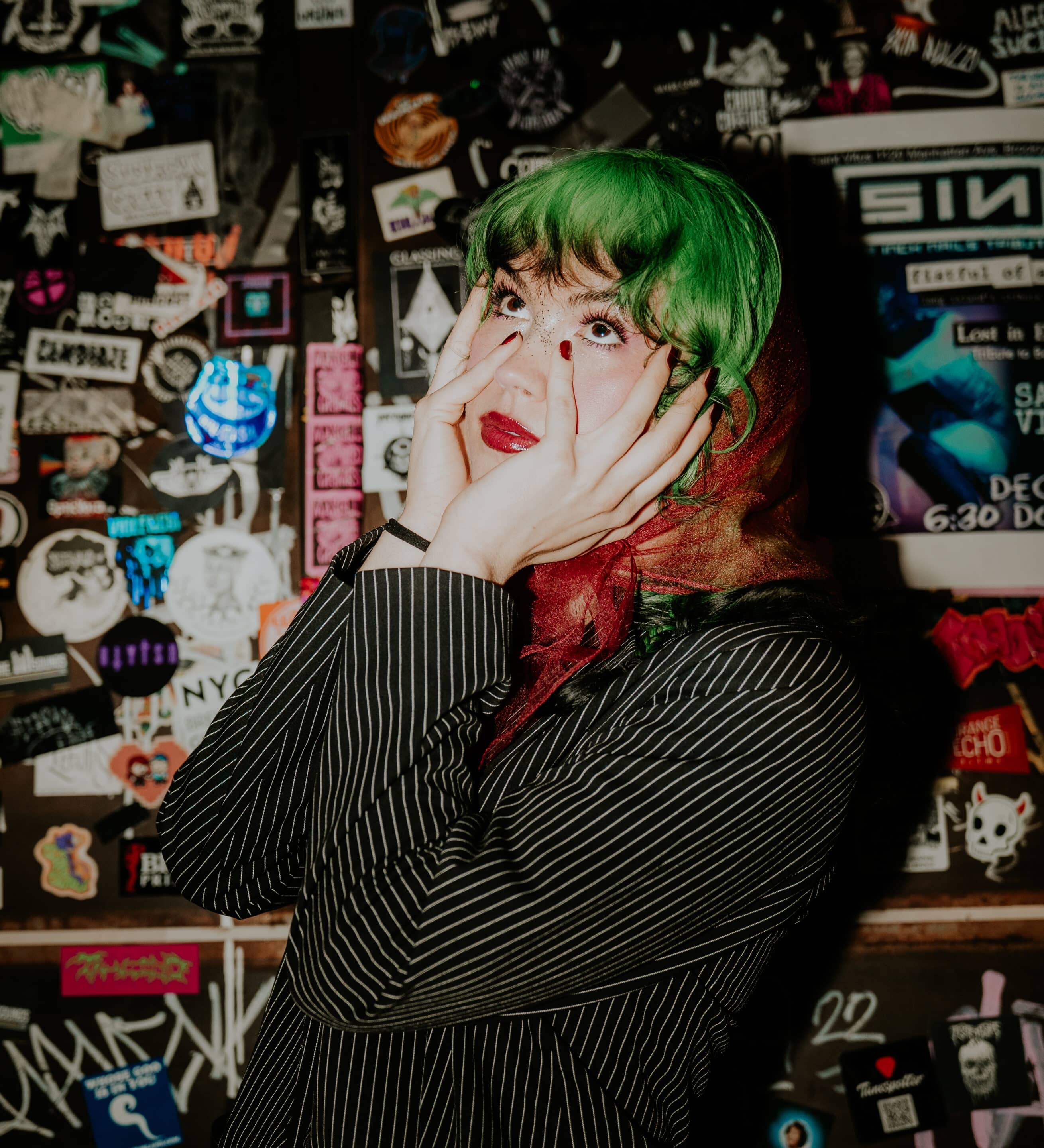
Moss: It’s a learning process for sure. I would be lying if I said that I totally had it all figured out and was super happy and super healthy all year while touring nonstop. There’s been a lot of highs and lows, and I’ve gotten sick a lot. That’s probably been the thing that’s been the biggest bummer for me. So I’ve been focusing really hard on trying to have a better diet, and getting better sleep, prioritizing checking in with my body and checking in with myself constantly like “Am I drinking enough water? Do I need to eat?” And then taking the necessary steps to build up my immune system. Getting sick nonstop, it’s hard.
Mundane: When you’re off tour, what does your life look like these days?
Moss: Very relaxed and very chill, I’ve been making an effort to make myself relax. I tend to be a bit of a fast-paced person. It’s kind of the practice of learning to relax and stay in bed a little bit more. I like to keep up a schedule because of course, classic ADHD, I feel like if I don’t move, nothing happens. So I have to keep myself moving a little bit, but finding balance is important and I’m still figuring it out. My favorite thing to do when I’m home is to just make myself a home-cooked meal, and go grocery shopping, take walks, as much as I can, I love walking. I live in Santa Cruz right by the beach so I can walk to the beach or through the woods, it’s really gorgeous.
Mundane: Scowl took off pretty immediately post-COVID. Since then, you’ve had this intensive touring schedule. Most bands spend years kind of treading water before they get to where you’ve been. Are there challenges that come with that?
Moss: Yeah, we started before Covid but didn’t start touring full-time until after. I feel like we got our legs a little bit before getting thrust into the touring schedule because we did a handful of tours before Covid, but nothing that was “an official tour” if that makes sense. They were all DIY tours, maybe like, ten to twelve-day tours. When we jumped in and did our first month-long, or our first US runs and things like that, it definitely felt shocking, but to say the least we were all really hungry for it. We all really wanted to do it, so if anything it wasn’t shocking beyond that initial adjustment to being on the road for a while. We were all really excited, we were eating it up. And we’ve been in the mindset for a while, until maybe the last year where we’ve been like “Okay, we’re really in it now” We’ve gotten used to the grind. We’ve had a lot of excitement to help fuel us.
Mundane: With the other members in your band, you guys are tied together in this hyper-specific, strange experience. What is it like sharing that with four other people?
Moss: It’s really cool. We definitely share a lot of the experience, I’d say for me, because I’m a girl, and everyone else in the band is either a boy or has a male perspective on life, there’s a little bit of a difference there, but not a major one. Certain things I experience are a little bit different, but for the most part, we really connect and share this experience, I feel like that part of it is really special and I’m really grateful to not be going through it alone. Having them there is such a pleasure and such a relief in a lot of ways. Because maybe on days when I don’t feel like I’m strong enough to keep the vibe up, there’s always going to be someone else there who can.
Mundane: I don’t ever want to do articles that are like, “This is a female-fronted hardcore band” or you know, driving in so hard that there’s a woman in the band like it’s some kind of novelty thing, but there is something to be said about kind of growing up as a woman in that space. What has that been like for you?
Moss: I don’t know any different, you know? I think that’s the thing that’s so interesting about that. The feminine experience, or the female experience moving through music, especially in a male-dominated genre, you don’t know any different. I do realize now in hindsight how many defenses I’ve had. and maybe ways that I’ve had to protect myself, where now I don’t need to do that as much.
Mundane: And that’s part of the female experience, always growing up self-preservative and self-protective and having to assess how it’s limiting you in some way.
Moss: Yes, exactly. And it cultivates in life, but it also cultivates in subculture. I think that part is really interesting, and I’ve been making an effort to kind of dissect that within myself and have those conversations within myself, asking what I’m doing here and how whatever that’s happening is making me feel.
Mundane: When you’re fronting a band, especially in punk and hardcore which is inherently tied to this kind of moral code of conduct, you’re treated as a kind of spokesperson for a lot more than just music. Is that scary to you? Or are you taking it in stride?
Moss: It is scary. To say that it isn’t a lot of pressure, I’d be lying. I do sometimes find myself lying in bed at night like, “This is a lot.” But it’s one of those things where I can’t allow myself to future-trip too much or overthink that part because that part doesn’t really depend on me being an artist, or me being an artist doesn’t depend on that. I feel like being able to identify myself as an artist, first and foremost, has been really relieving a lot of that pressure. Not to say that I don’t take on those responsibilities, or that I don’t want to, because it’s an honor to have a small percentage of that responsibility, but it would be really hard on me to constantly be concerned with it, or constantly thinking about it. That would just be too much work for my brain. Just focusing on the nitty-gritty of the art and making an effort to make time for myself as an artist first, and serving myself that way, that’s been really helpful.
Making music is the biggest part of it, and if that wasn’t part of it then I wouldn’t have any of the pressure you know? So I look at some of the pressure as a gift and I just try to not overly personalize with it.
Mundane: What is it that you want people to take away from your work?
Moss: I want people to hopefully feel inspired to go and start their own bands, and to feel like they’re welcome in that space. Not only at just a Scowl show but at any punk show, hardcore show, DIY Show, anywhere where they can feel that they’re just as welcome into that space and that they have just as much ownership of the energy in that space. I don’t want any young queer kid or young girl to have to go and experience the fear and the anxiety of questioning if they’re allowed to be there or if they’re a part of it, if that space is for them too. And if going to a Scowl show makes them feel welcome enough to go back to another punk show then my job is done.

